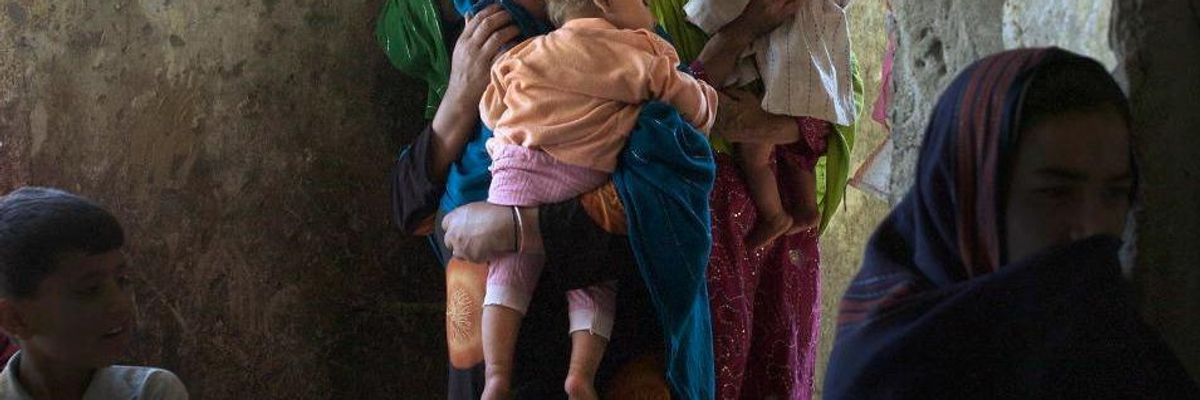There has been no justice for thousands of Afghan civilians killed and countless injured by U.S. and other international forces in the five-year period from 2009 to 2013, according to a report released late Friday by the human rights group Amnesty International.
The report, Left in the Dark: Failures of Accountability for Civilian Casualties Caused by International Military Operations in Afghanistan (pdf), focuses on operations carried out by U.S. Special Forces and troops under the command of the NATO-led International Security Assistance Force (ISAF), the large majority of which are from the U.S. The study found that even apparent war crimes carried out by occupying forces have gone without investigation or punishment.
The report documents detailed witness accounts of Afghan civilian deaths, including women and children, at the hands of U.S. forces, serving as a damning indictment of the invasion as the U.S. prepares to draw down the number of troops from 32,000 to 9,800 by 2015.
In one such instance, researchers spoke with Ghulam Noor, a farmer whose 16-year-old daughter, Bibi Halimi, was killed when a U.S. plane dropped at least two bombs on a group of women collecting firewood in a mountainous area in Laghman province.
"No one ever contacted Noor or other family members to investigate the circumstances and legality of the attack," the report notes. "None of the family members were informed why the attack took place or what justification it might have had."
According to Amnesty International, none of the cases they investigated--which involved more than 140 civilian deaths, including pregnant women and at least 50 children--were prosecuted by the U.S. military. Further, evidence of possible war crimes, such as torture, and unlawful killings has also "seemingly been ignored."
"Thousands of Afghans have been killed or injured by U.S. forces since the invasion, but the victims and their families have little chance of redress. The U.S. military justice system almost always fails to hold its soldiers accountable for unlawful killings and other abuses," said Richard Bennett, Amnesty International's Asia Pacific Director.
Under international humanitarian "laws of war," if civilians appear to have been killed deliberately or indiscriminately, or as part of a disproportionate attack, the incident requires a prompt, thorough and impartial inquiry. If that inquiry shows that the laws of war were violated, a prosecution should be initiated.
As international forces in Afghanistan are effectively immune from Afghan legal processes, the U.S. military justice system is the only recourse for the families of those killed. However, the report notes that the "deeply flawed" U.S. military justice system is "essentially a form of self-policing."
According to the report:
The military justice system is "commander-driven" and, to a large extent, relies on soldiers' own accounts of their actions in assessing the legality of a given operation. Lacking independent prosecutorial authorities, it expects soldiers and commanders to report potential human rights violations themselves. The conflict of interest is clear.
In the rare instances when a case actually reaches the prosecution stage, there are serious concerns about the lack of independence of US military courts. It is extremely rare that Afghans themselves are invited to testify in these cases.
Further, the report documents the "lack of transparency on investigations and prosecutions of unlawful killings," saying that the U.S. military continues to withhold overall data on accountability for civilian casualties and "rarely" provides any information on individual cases.
Among the recommendations, Amnesty International encourages the Afghan government to ensure that accountability for unlawful civilian killings is guaranteed in the pending bilateral security agreement between Afghanistan and NATO--a stipulation that the U.S. government under President Barack Obama continues to push against.

